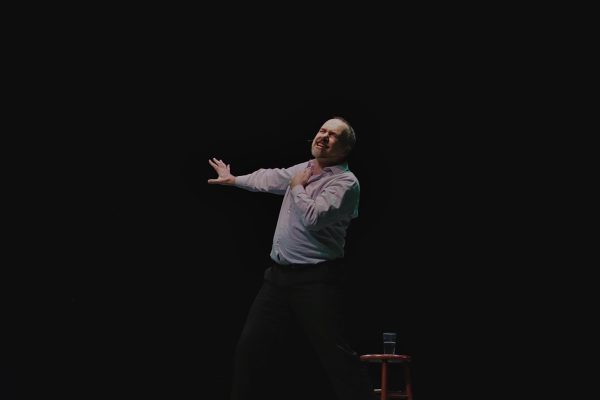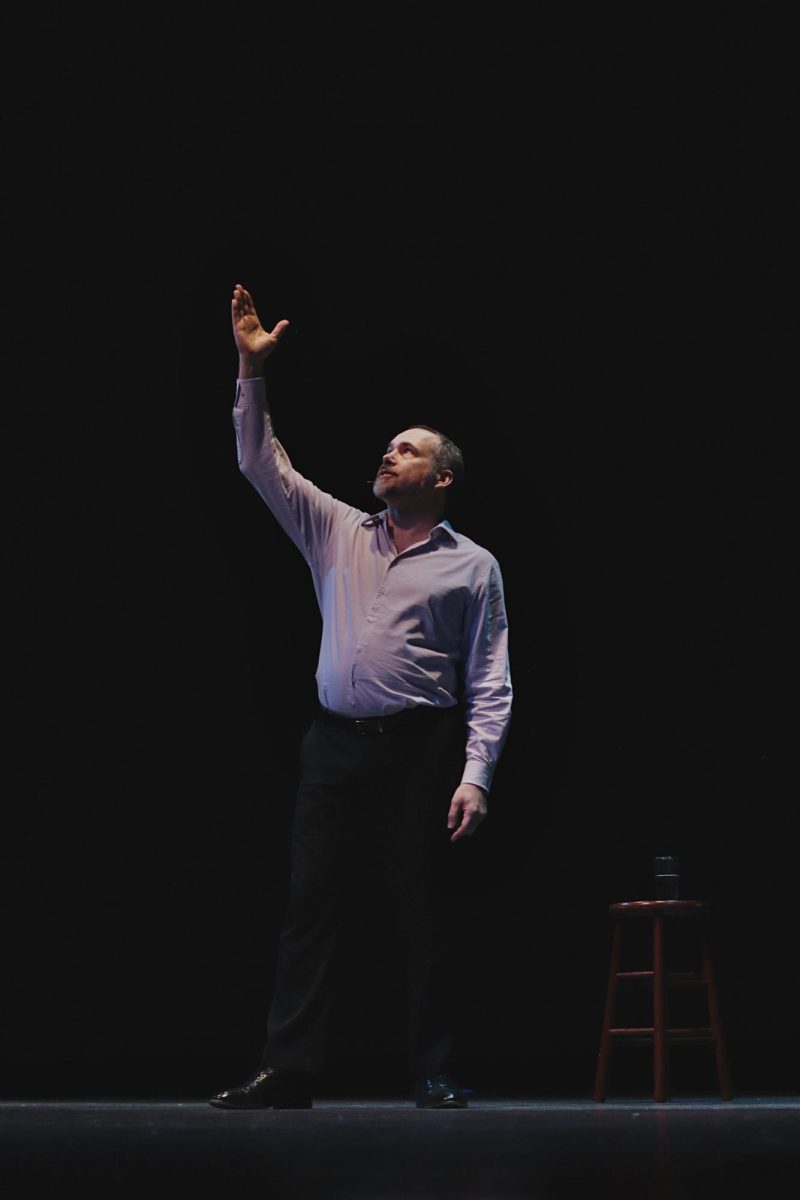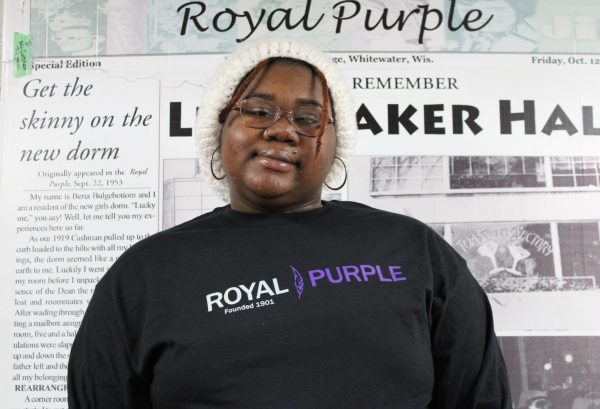From retellings of a warrior king who kills monsters, to the earliest surviving epic poem, John Heimbuch was able to do both in his shows Beowulf and Gilgamesh.
Beowulf
On Sept. 17 at 7 p.m., Heimbuch made his first entrance with the story of Beowulf at The Young. People old and young all came to watch. For a retelling filled with fantasy violence and guts, one wouldn’t expect such a casual start.
“Hey there,” performer John Heimbuch said to the audience. “My friend Charlie told me a story once…” Quickly, the tone of his voice changes as he begins from a casual, friendly one to a boisterous and loud one. A voice loud enough to “[ring] the ears of men,” as Heimbuch says in the retelling.
Throughout the show, it felt like he was flying throughout the stage with exaggerated movements and gestures that corresponded with the words he said. If he was talking about a monster, he was the monster. If a character held a dagger, he raised an imaginary blade into the air. Even as he describes the scenery, he was the scenery, showcasing every bump of a mountain and the imaginary waves of water.
Although he didn’t need props, the only prop he does use, aside from himself, is a single cup of water. What did he use this cup for? Obviously, as a cup! When a character gave a toast or stole a cup, the cup was the perfect role. Afterwards, in a Q&A, audience members learned he purposely lined up his drinks to go along with the story.
Despite the overall tone of the story being full of blood and death, he still made sure to add a bit of humor.
“The shark, and with his spear he shoved in their brave faces, and he spoke with formal words: HEY! Hey, hey, hey, hey, hey! Go through your mom to tell you who you are from once you came to water!” Heimbuch said one moment before the next, “Glug, glug, glug,” with an empty cup, since he made the mistake of not filling it fully in the beginning.
Gilgamesh
“This is the story of the dazzling king, who looked into the deep abyss and then saw everything; Gilgamesh,” Heimbuch said to start the show.

(Fleuretta Phipps)
Similar to the Beowulf show, his movements were just as fluid and animated, the lighting matched the mood and setting transitions, and even his humor remained in a story about death.
“First, Gilgamesh is not, I repeat, is not, full human. He’s two-thirds a god. Two-thirds a god? So it makes sense he’s dazzling,” Heimbuch said.
Although both stories are about death one way or another, rather than causing death, this story is of Gilgamesh seeking a way to escape death.
“He sat, and he watched the sunrise and then reflected off of the shining wall of darkness,” Heimbuch said. “He had one thought: Everything mortal dies.”
However, unlike Beowulf, his retelling of Gilgamesh included more narration, which helped the two shows differentiate in style and mood. The extra narration only helped add to the storytelling and humor, allowing for opportunities to put imaginary parentheses in certain parts of the story, which always brought a snicker from the audience.
“Then she says, so what brings you into the neighborhood then, Gilgamesh?” Heimbuch said. “She knows his name! Those pesky gods.”
As mentioned earlier, after both shows, he held a small Q&A where audience members were able to ask questions revolving around the stories themselves, his performance, or anything else.
“I had seen Charlie Bethel perform Beowulf… it was just an amazing piece,” Heimbuch said. “Charlie Bethel passed away unfortunately, passed away in 2017. As writers pass away, most often than not, so does their legacy. And so that idea just left me a little heartbroken, and I thought, how can I continue the experience I had, like the awe-inspiring experience that he gave me, how can I give that to other people?”
One audience member questioned John Heimbuch about how retelling these two stories that involve themes around death and legacy connects to Heimbuch’s performance honoring the original creator of this work, his friend, Charlie Bethel.
“It’s tricky, right, because I feel like on some levels I am doing honor to my friend and I am carrying his legacy, but I also feel like I’m a vulture,” Heimbuch said. “Taking a thing and expanding it. There’s this balance of trying to make sure the way I’m approaching this is with humility… and with honoring the work that he did… letting the work speak for itself. I think his work is strong, and I don’t know how much it’s critical now that I do it with the way he did it, but I do think that I owe [Beowulf and Gilgamesh(?)] and I want it to be in his honor.”



